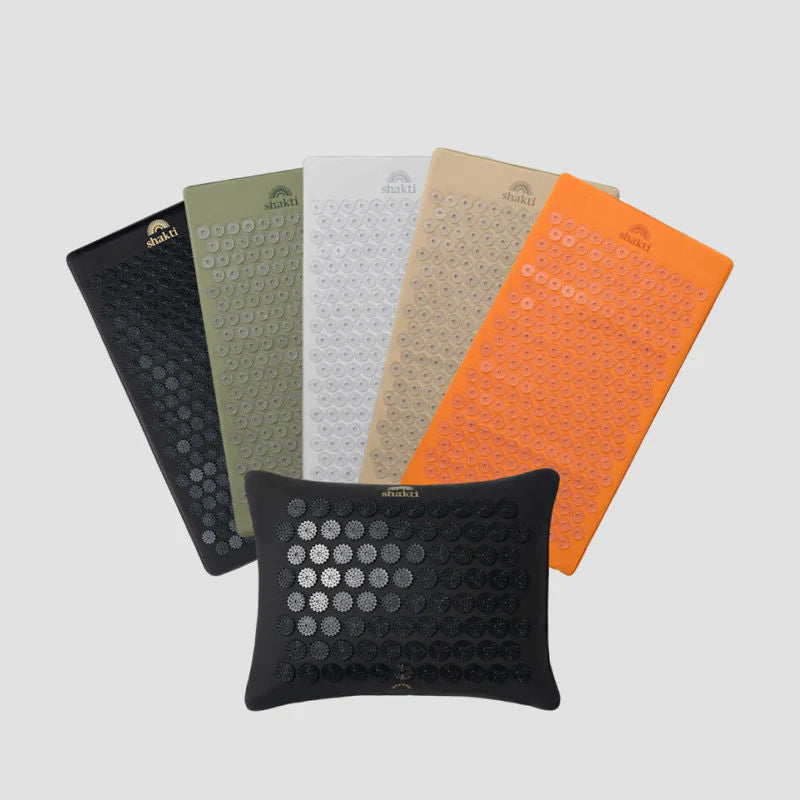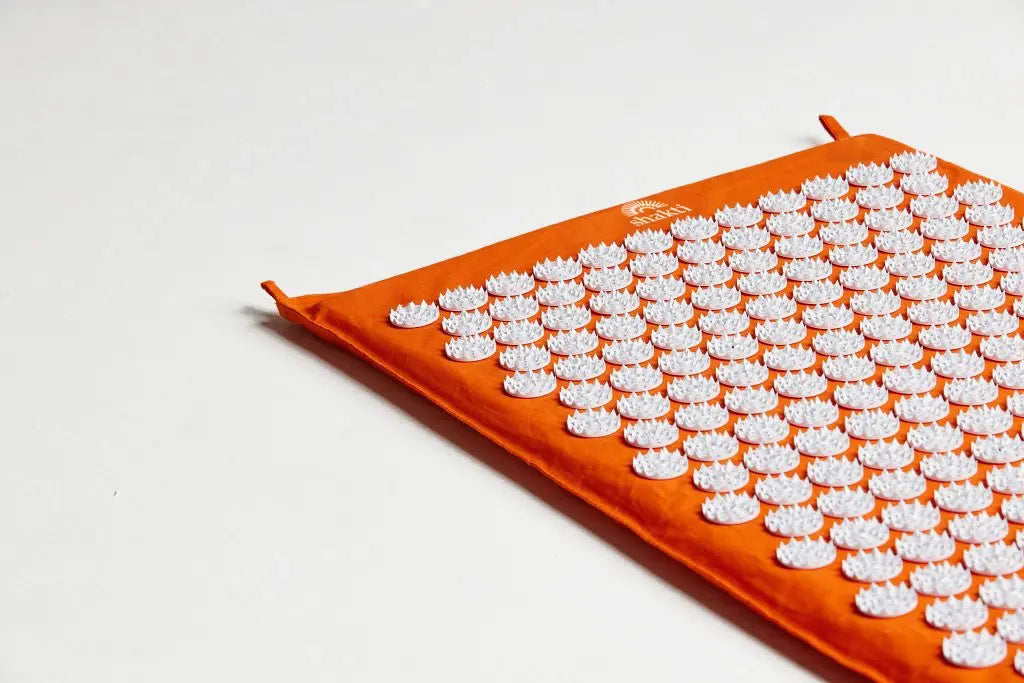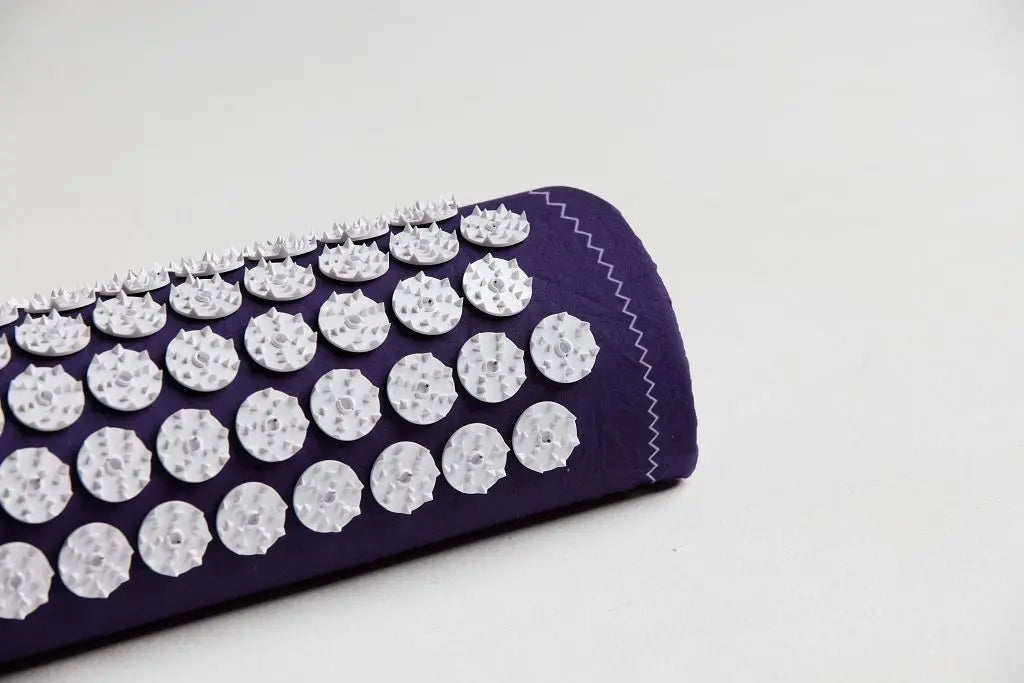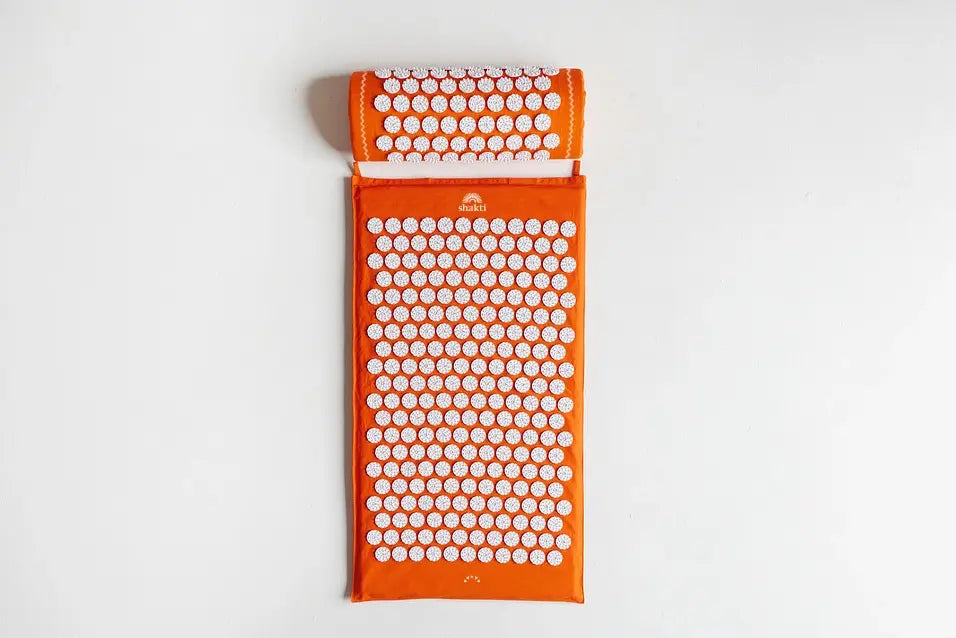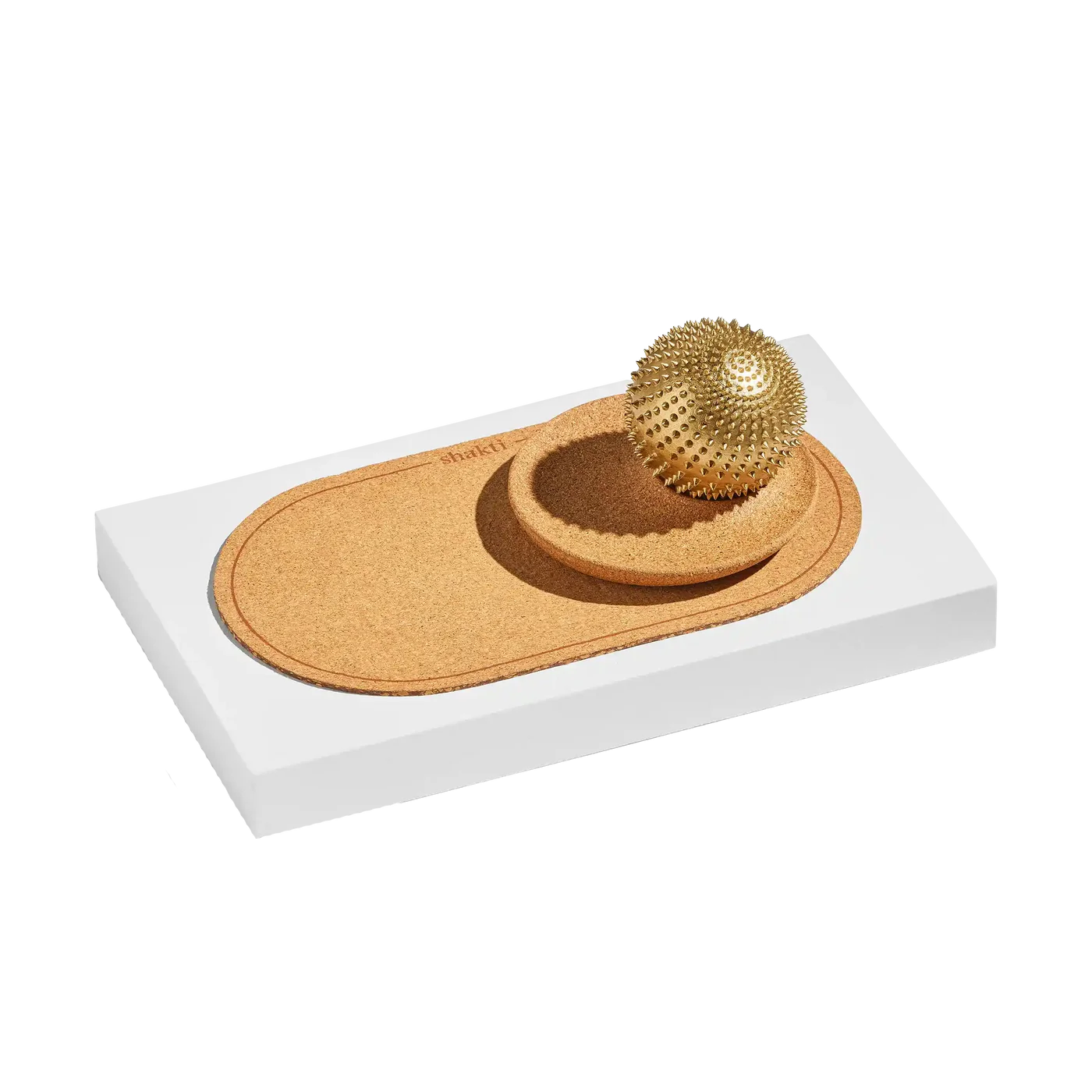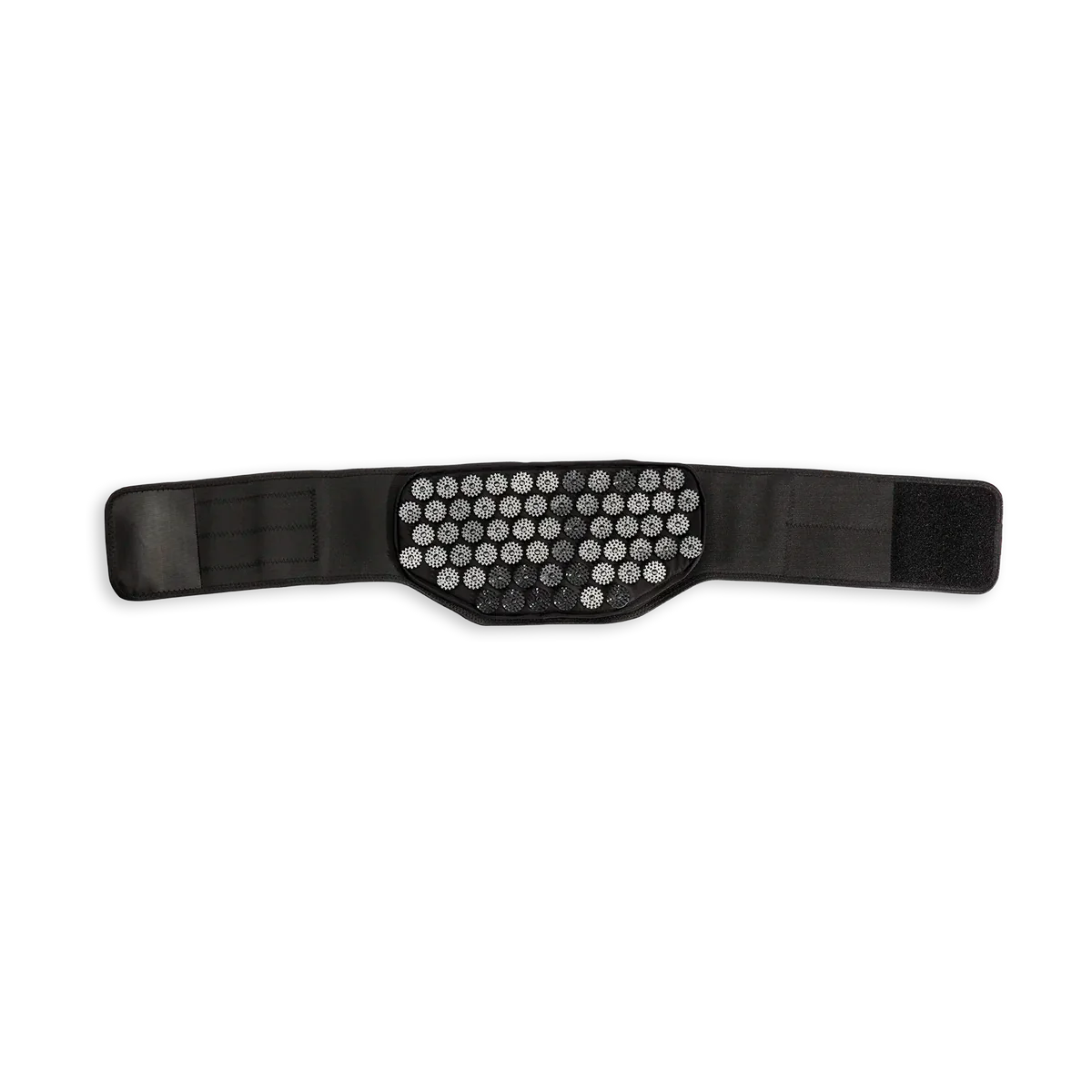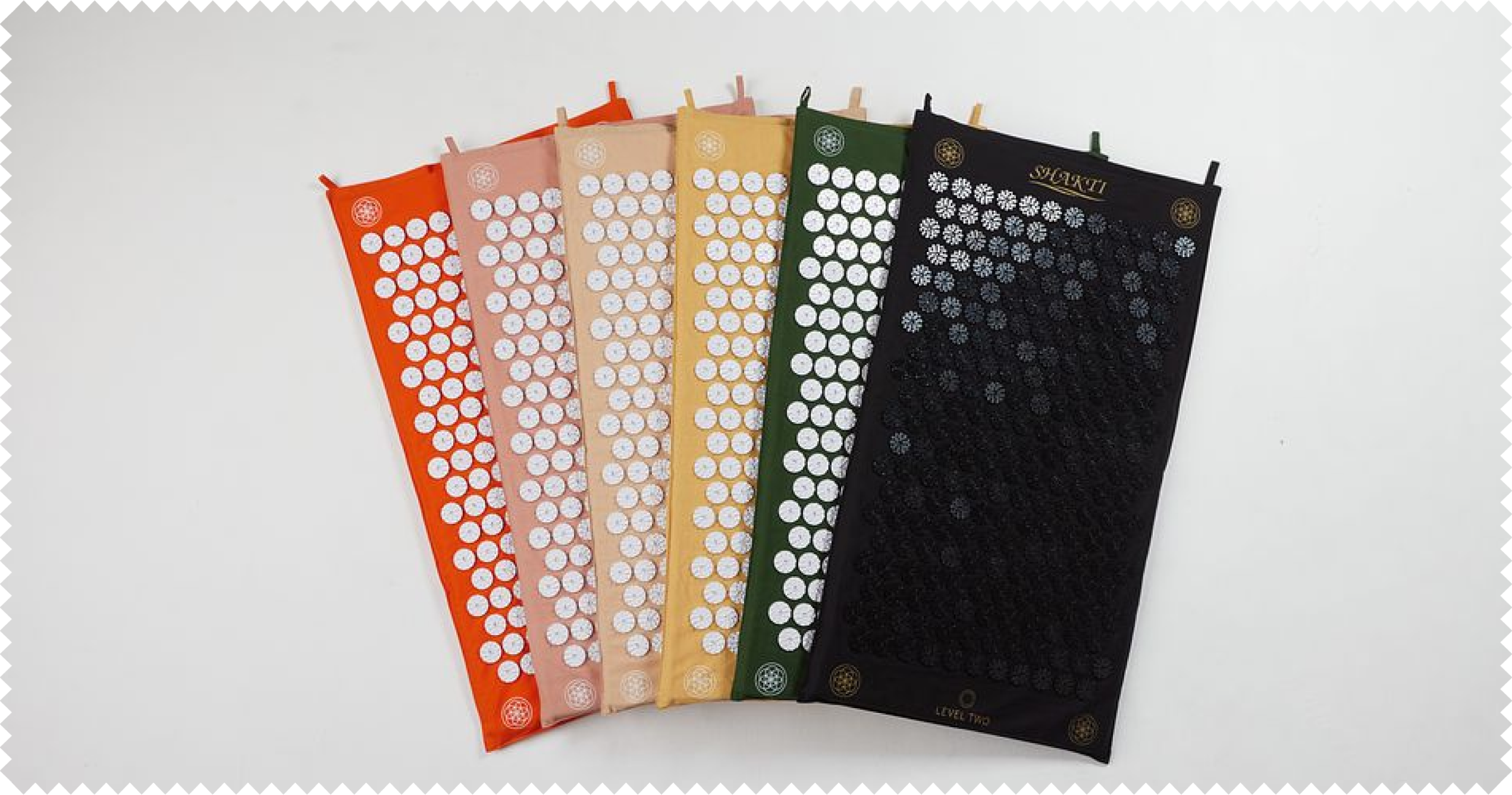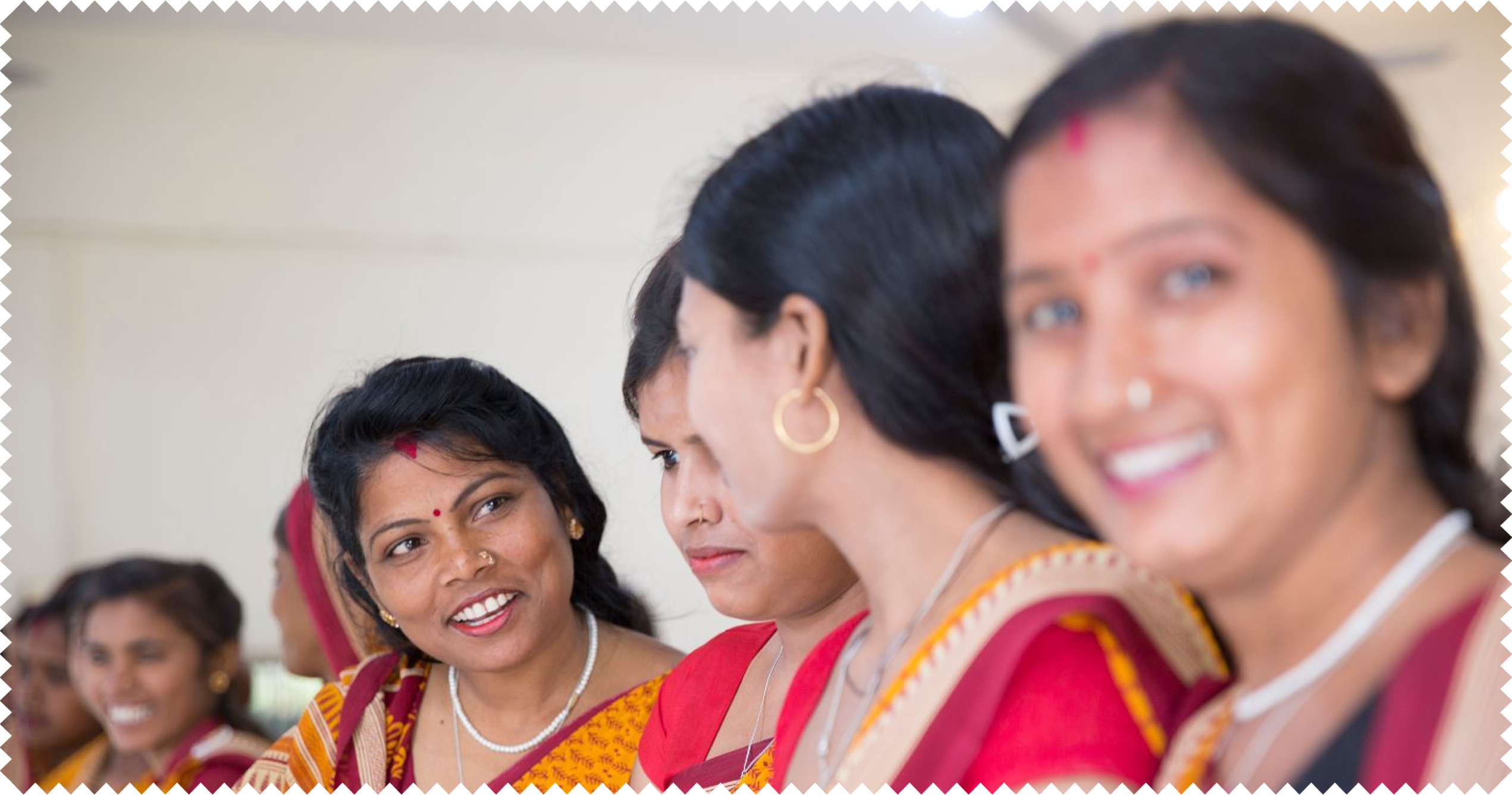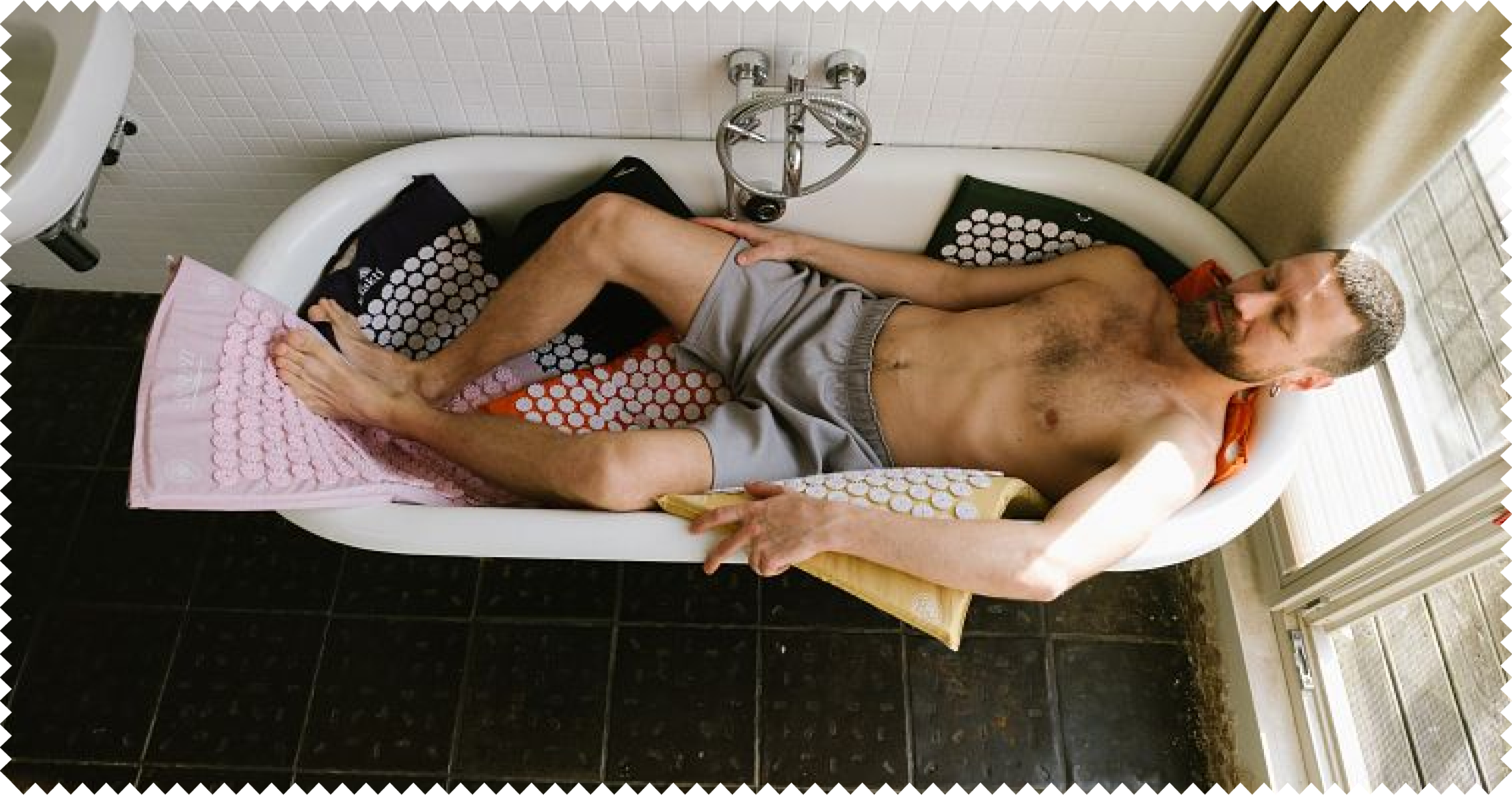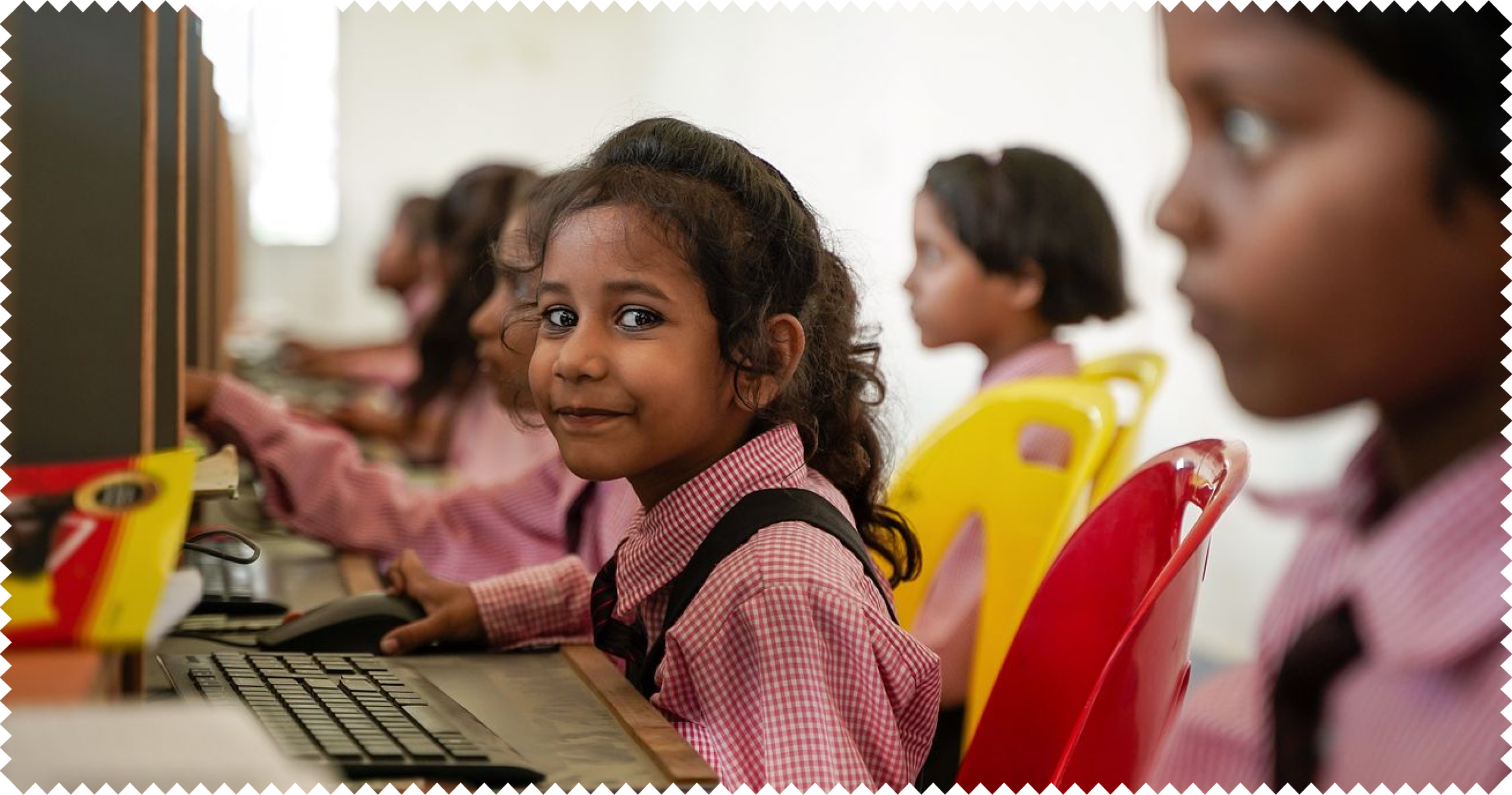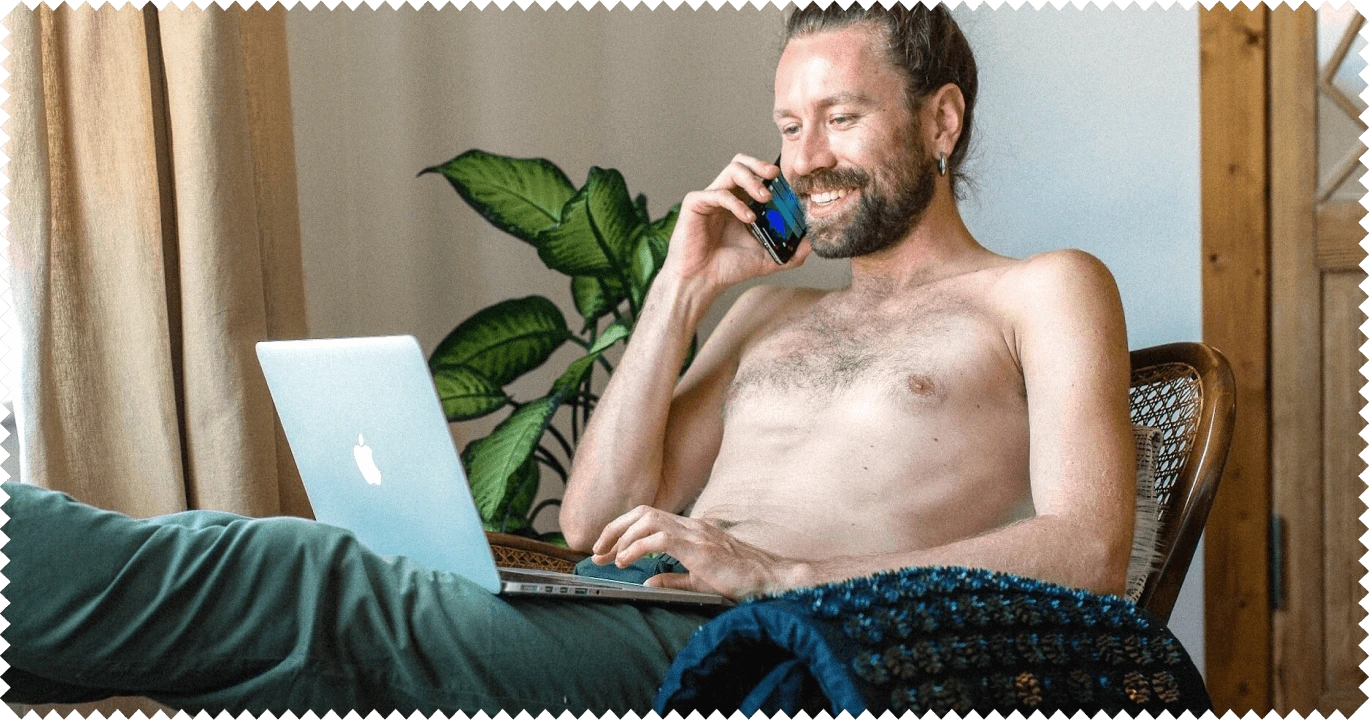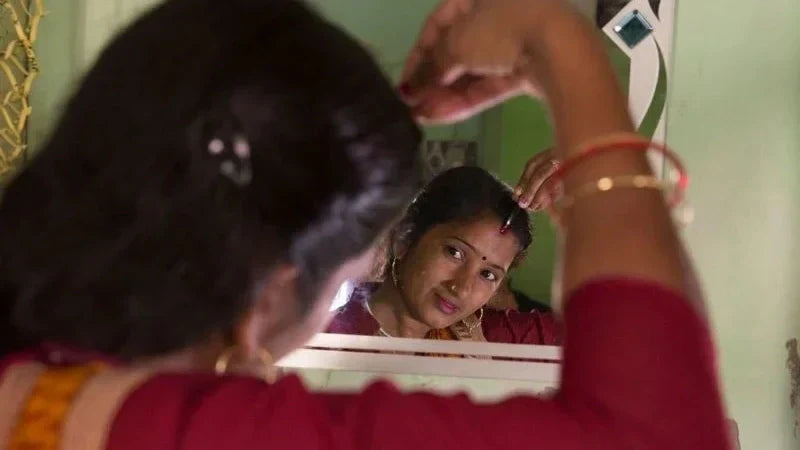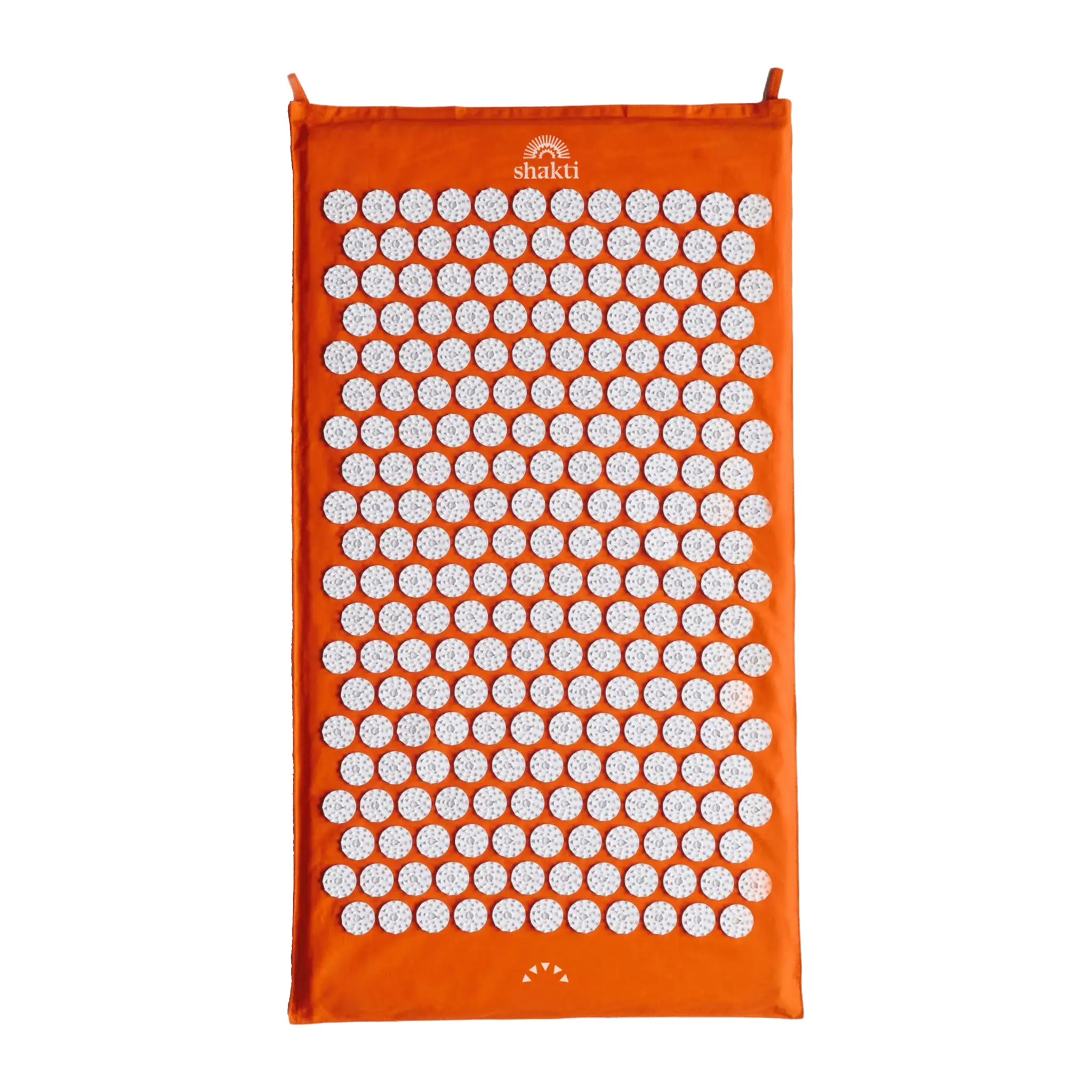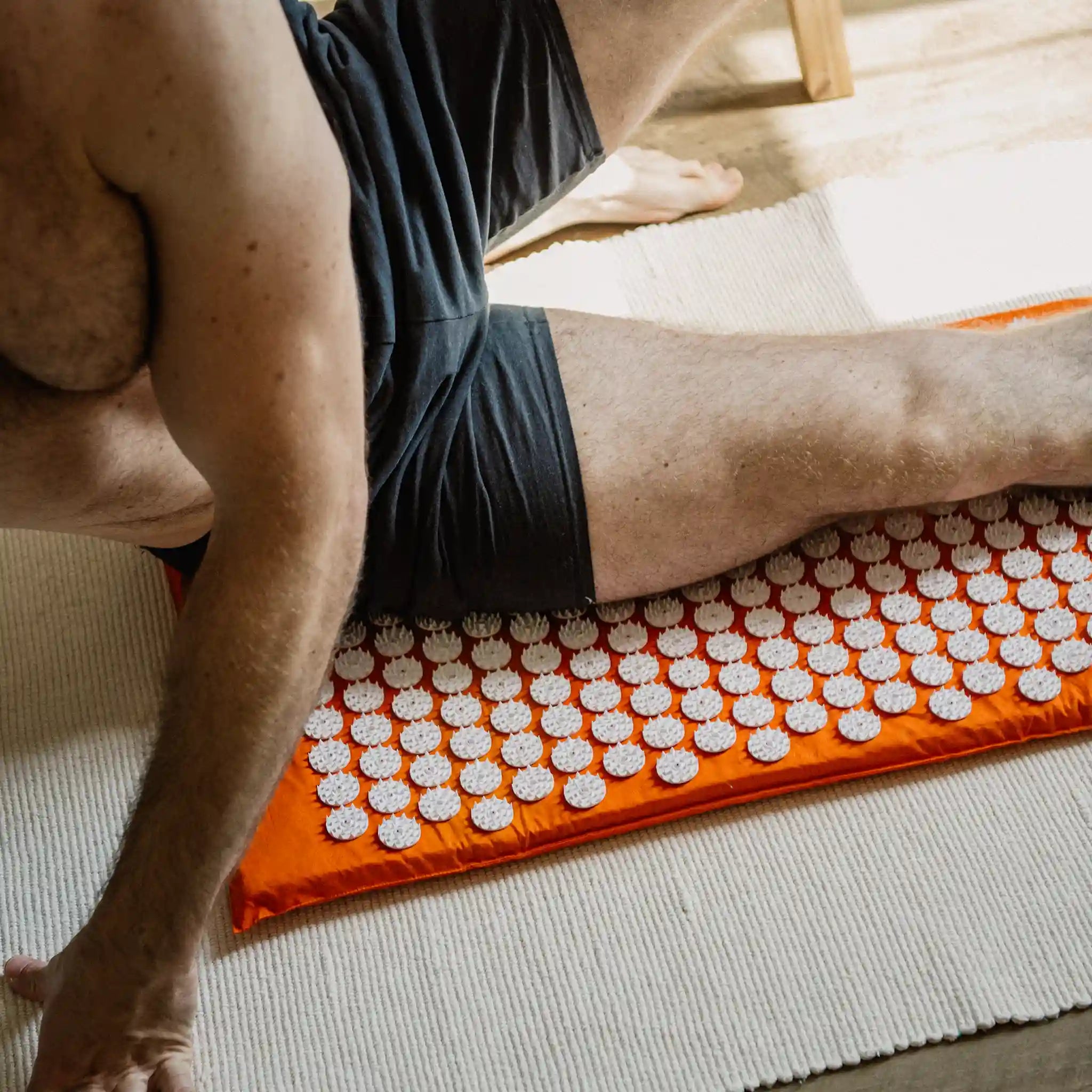Shakti Mat has been supporting women in India since 2007. Gain an insight into the day-to-day work at the Gratitude Factory in Varanasi. Read the interview with our colleague Aarti Devi about her everyday life, her family and her work.
March is the month of new beginnings, spring and women's rights. As they have done for over a hundred years, people all over the world take to the streets on International Women's Day. To campaign for equal rights, higher wages and better working conditions for women, as well as for women's suffrage and against discrimination.
How do we do our bit for the rights of all women and girls - beyond Women's History Month? Aarti Devi will tell you. The 30-year-old Indian woman is one of the colleagues in our Gratitude Factory. Our production facility in Varanasi, India, where every acupressure mat is lovingly handcrafted, where only women work and can therefore lead a more self-determined and financially independent life.
Content
1. what are the origins of Women's Day and what is the significance of Women's History Month?
2. how do women live in India and what rights do they have?
3. a look at the economic status of Indian women
5 Why is a job important for Indian women and their families?
6. interview with our colleague Aarti Devi
Where are the origins of Women's Day and what does Women's History Month mean?
To this day, people are discriminated against on the basis of their gender, origin, religion or sexual orientation. To put an end to this injustice, women all over the world joined forces centuries ago to stand up for their rights. Incidentally, March 8 has been the United Nations Day for Women's Rights and World Peace since 1975.
But as early as the end of the 19th century, the women's and workers' movement of the time called for a separate day on which women globally campaigned for humanitarian rights, equal economic opportunities and political goals.
Broken down, this means that they campaign against all forms of discrimination - to this day. And the fight for a fairer world continues. Because in many parts of the world, the role of women is still less valued by society than that of men. Even when the law is fair, making it a reality is usually the more difficult part of the job. But we as individuals can do something about this: We all need to rethink, to critically question outdated, (subconsciously) inherited or self-imposed behavior patterns and ways of thinking, to exchange ideas, to look for new ways and solutions and to be open to new and unknown things and to listen.
How do women live in India and what rights do they have?
Women's rights and gender equality are officially recognized in India. Nevertheless, the democratic country is considered the most dangerous for women in the world. Why is that?
Unfortunately, the difference between legal regulations such as those of governments, the UN and the EU often still do not reflect reality. For women in India, the social degradation and status of women is a persistent problem that allows discrimination on many different levels. This is because it is not "only" based on gender, but also on caste, class, sexual orientation or (religious) traditions.
One example: For centuries, it was common for families to pay so-called dowries to the husband's family when their daughter married. Although the law has prohibited dowries since 1961, they are still very common. Often the payments are a large, financial burden on the bride's family. Dowry disputes in Indian families repeatedly lead to women being mistreated, disowned or even killed.
A look at the economic status of Indian women
In the country's export-oriented textile industry, the proportion of female workers is around 70% - and even higher depending on the region. Despite the fact that so many women find employment in this industry, working conditions are often miserable. Salaries are below the statutory minimum wage. The gender pay gap in the Indian garment industry is around 39%.
How Shakti Mat advocates for Indian women and why female empowerment in the workplace/business is so important
In the sense of "de jure" - i.e. according to applicable law - ever stronger regulations are coming into force to protect the rights of women and girls worldwide. For this to become a reality, we as a global society are called upon to act. We have therefore not only taken up the cause of promoting women; it is our cornerstone, our philosophy, our why.
It starts with the name: The word "Shakti" comes from Sanskrit and stands for the female elemental force, which is characterized by compassion, creativity and a nurturing quality. Our hope is that everyone who comes into contact with one of our mats will feel connected to this energy. It was therefore a conscious decision to have our mats made in a production facility where only women work, earning salaries above the local average and enjoying many other benefits. We currently employ around 80 women.
The all-female workforce is intended not only to protect women from potential harassment and physical and psychological violence in the workplace (as is a terrible reality in conventional factories in the Indian textile industry), but also to provide them with a safe support network. Many of the women were only allowed to work at the Gratitude Factory because no men work there.
Why is a workplace important for Indian women and their families?
Since our founding in 2007, we have had a vision: to create a place that supports women to be financially independent and self-sufficient. Time to go back to that place - to the women who made your mat 100% by hand. It is important to tell their stories. To draw attention to their situation and inspire other women.
One of our employees at the Gratitude Factory in Varanasi - Aarti Devi - took us with her for a day to give us and you an insight into her everyday life. This is her story.
Interview with our colleague Aarti Devi
Please introduce yourself briefly.
Aarti: My name is Aarti Devi. I am 30 years old.
Who all belongs to your family?
Aarti: I live with my husband, my three children and my mother-in-law. Like me, my husband works. The children go to school and my mother-in-law stays at home.
Have you ever had financial difficulties at home?
Aarti: Yes, I have financial difficulties at home. Sometimes - especially in the rainy season - my husband doesn't get any work. He is a painter and paints houses. It is difficult for him to find work at this time.
How did you find out about our production facility in Varanasi?
Aarti: I used to come to the local market to shop. Then I saw the poster hanging outside the Shakti Mat factory. I had already applied once. There was no vacancy. After seeing the poster and talking to the people here, I applied again. I've been working here ever since.
How has your life changed since you started working at the Gratitude Factory?
Aarti: My life has changed a lot. Before, I had to get by on very little money, which was very difficult. I was sewing and had no regular jobs. I even had to work in the fields, but it was irregular. Since I've been able to work here, I have a regular income.
How do you like working here?
Aarti: I like it very much. I even miss work when I'm on vacation. Since I've been working here, I can fulfill almost all the needs of my family and children. I don't have to ask anyone for anything anymore. Since I work here, I have saved some money that I can use for my own expenses. I don't even have to ask my husband and I can spend the money on my children and myself. It is used for the household. Be it to buy something for the children or for groceries. Neither of us keeps it as such. Now it doesn't matter if my husband earns money or not because I can meet our expenses through my earnings. I also have a support system because I earn something.
Tell us something about your daily routine. How do you start the day before you come to the Gratitude Factory?
Aarti: I wake up and clean the house first. Then I clean the chulha and cook. After that, I wake everyone up, get my kids ready for school, give my family breakfast and send them to work and school. Then I eat, wash the utensils, get ready and come here to work.
And what is your routine at work?
Aarti: I come here and sew the mats. Sometimes, when the demand for the mats is higher, I also help repair the windows.
How long does it take to process a mat?
Aarti: It takes me about 20 minutes to work on one mat. I work on around 30 mats a day. I like the fact that I have sewn so many mats at the end of the day.
How does the company support the workforce?
Aarti: I get a free lunch here and if we are sick, we get medicine or help from the Shakti Mat Emergency Fund. We can take leave here, but they don't deduct the salary, which is a good thing. Such benefits are very helpful for us. I don't know if I would get the same benefits and the same money if I worked somewhere else. That's why I don't feel like I would ever want to leave this place.
There is a scholarship fund for the daughters of all employees.
Aarti: Exactly! My daughter went to a state school along with my other two children. Thanks to the scholarship, she goes to an English medium school and I am so happy about it. It's like a dream come true. When my daughter used to see other children going to a better school, she always said that she wanted to wear a uniform, ride the school bus and study in that school too. I couldn't make that possible for her before, but now her and my dream of sending her to a better school has come true.
How do you feel about the mats produced here going to other countries and the people there benefiting from using these mats?
Aarti: I feel that our hard work helps others to alleviate their pain. And that's why I feel lucky that I make these mats.
Do other women who see you coming to work feel inspired and want to work here?
Aarti: Many of the women in my neighborhood even work here with me. Others feel that working in the fields allows them to spend more time at home instead of coming to the factory. And still others have small children, so they can't come here to work.
How many women have followed you here?
Aarti: There are almost 7-8 women from Narottampur who joined after they saw me working here. Like Geeta and there are many other girls too.
Women from every caste and religion come here and work together. What is that like in your opinion?
Aarti: I really enjoy working here because people don't differentiate according to caste and religion. We even eat from each other's plates and are happy that nobody discriminates here. Outside in society, people may differentiate, but within the team we never do. It's a harmonious environment. We work like a family. We share each other's worries and happiness and also help each other at work.
What exactly does this teamwork look like?
Aarti: If someone gets sick and they can't finish their work, then we share their work and finish it.
What final message do you have for all your customers?
Aarti: We make the mats for them and for their benefit, and that gives us great pleasure.
We hope that, together with Aarti, we were able to give you a little insight into the reality of women in the north of India. The original interview has been translated into German for this purpose.
Feel free to discuss with others in our acupressure Facebook group what you think about the production of the acupressure mat. Find out more about the social and charitable projects that Shakti supports.
About the author
Jasmin is a passionate content creator - with a business mind. As a German-American, she grew up in Franconia, experienced bed bugs in the Big Apple, survived paragliding flights in Argentina and lost her heart to creative Berlin. She is fascinated by cultures and their peculiarities and is interested in a sustainable and healthy lifestyle as well as the topics of futurology, digitalization and the phenomenon of how trends emerge. She has also been bitten by the yoga bug for a few years now. That's why she always takes her yoga mat with her - for example on countless road trips through Europe with her boyfriend, her little cocker spaniel and hopefully soon with her own camper van.
Sources
- https://www.welthungerhilfe.de/informieren/themen/women-empowerment
- https://www.ccl.org/articles/leading-effectively-articles/7-reasons-want-women-workplace
- https://www.dgb.de/schwerpunkt/internationaler-frauentag-weltfrauentag
- https://www.planet-wissen.de/kultur/asien/indien/pwiefraueninindien100.html
- https://praxistipps.focus.de/frauenrechte-indien-soziale-stellung-und-benachteiligung_117977
- https://www.sos-kinderdoerfer.de/informieren/wo-wir-helfen/asien/indien/gewalt-frauen-indien
- https://www.hss.de/news/detail/frauen-in-indien-zwischen-emanzipation-und-tradition-news4024
- https://www.vfstiftung.de/die-situation-von-frauen-in-indien
- https://www.spiegel.de/panorama/indien-wie-geht-es-frauen-hier-ein-mann-hat-einen-film-darueber-gedreht-a-62afd1ef-286a-4ef3-ad23-8bd4ec923efe
- https://www.forbes.com/sites/shelleyzalis/2019/03/06/power-of-the-pack-women-who-support-women-are-more-successful/?sh=73b4c11f1771
- https://femnet.de/informationen/laender-und-arbeitsbedingungen/indien.html
- https://de.wikipedia.org/wiki/Varanasi https://praxistipps.focus.de/frauenrechte-indien-soziale-stellung-und-benachteiligung_117977
- https://www.hss.de/news/detail/frauen-in-indien-zwischen-emanzipation-und-tradition-news4024
- https://www.vfstiftung.de/die-situation-von-frauen-in-indien
- https://www.spiegel.de/panorama/indien-wie-geht-es-frauen-hier-ein-mann-hat-einen-film-darueber-gedreht-a-62afd1ef-286a-4ef3-ad23-8bd4ec923efe
- https://www.zeit.de/politik/ausland/2019-05/frauen-indien-wahlrecht-gleichberechtigung-wahlbeteiligung-mitbestimmung-feminismus
- https://www.sistersforchange.org.uk/wp-content/uploads/2019/03/SFC-Munnade-Report-FINAL-080616-copy.pdf
- https://media.business-humanrights.org/media/documents/files/documents/CS_INDIA_20198029.pdf


